 Richard Beninger
Richard Beninger
Rick was born in Walkerton ON in 1950. Most of his primary and secondary schooling was in St. Catharines ON where he played high school football and rowed on the famous Henley Regatta course. He spent his high school summers working for an industrial fencing company, installing chain link fences along highways and around factories in the Niagara Peninsula region.
In 1973 Rick completed an honours psychology degree at Western University in London ON, focusing on animal learning and physiological psychology, working during the summers in the laboratory of Case Vanderwolf. At McGill University in Montreal his studies of brain stimulation reward, carried out in the psychology laboratory of Peter Milner earned him the PhD in 1977. During his leisure time Rick hiked, played squash regularly and enjoyed pick-up games of softball.
Rick received a post-doctoral fellowship from the Medical Research Council (now CIHR) and continued his studies in the psychology laboratory of Anthony G Phillips at the University of British Columbia from 1977-1980. His psychopharmacological studies of neurotransmitters and behaviour focused on the role of dopamine in reward-related learning. Several of his papers published during those years have been widely cited and have contributed importantly to the development of understanding about the role of dopamine in incentive learning. Rick continued playing squash and took advantage of the nearby Canadian wilderness to enjoy backpacking, hiking and canoeing.
Rick came to Queen’s as an assistant professor in 1980. In 1981 he received an operating grant for studies of the role of brain neurotransmitters in the control of behaviour from NSERC; that funding has continued without interruption until 2020. Rick collaborated extensively with Khem Jhamnadas and Roland Boegman of the Department of Pharmacology and Toxicology at Queen's and together they published nearly 50 papers and received over a million dollars in joint funding; their work focused on the behavioural and neurochemical effects of endogenous neurotoxic and neuroprotective molecules. A large number of undergraduate and graduate students studied in Rick’s lab and many of them went on to become independent researchers at universities around the world. He was a regular on the squash court, trained to the level of second dan in karate and continued his backpacking.
During his years at Queen’s, Rick developed an interest in Parkinson’s disease and schizophrenia, diseases related to abnormal function of the brain’s dopamine systems. He was cross-appointed and then joint appointed to the Department of Psychiatry and continued to hold the position of Joint Professor of Psychology and Psychiatry until his retirement in 2015. Along with his students, he studied learning and memory in Parkinson's patients and in schizophrenia patients treated with dopamine receptor-blocking antipsychotic drugs. Results have been published in some of the leading schizophrenia research journals.
Rick is married to Judith Davidson, a clinical psychologist and sleep expert. They travel together whenever they can and particularly enjoy going to Spain where Rick collaborated with Tomas Palomo of Complutense University in Madrid for nearly 25 years. Rick and Judith share interests in athletic activities and in the visual and performing arts. Rick has two children: Max and Mariah. Max and his wife Samantha Drover study in North Carolina and Mari studies at Queen's.
Rick served as Head of Psychology from 2009-2014. During his term, he continued to maintain an active and well-funded research laboratory that attracted top students. He split his work time between his research office and the Head’s office where he dealt with the day-to-day business of running a productive and stimulating university department. He continues his research as Professor Emeritus. He can still be found indoors at the Athletics and Recreation Centre where squash and martial arts have been replaced by lower impact workouts on exercise equipment, or outdoors trekking the local backcountry. Richard J. Beninger's Faculty page
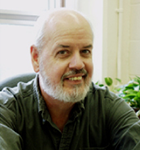 Vernon Quinsey
Vernon Quinsey
Vern Quinsey was born in Flin Flon Manitoba in 1944 and raised in Thunder Bay, Ontario (formerly the city of Port Arthur). He majored in Psychology and minored in Zoology at the University of North Dakota, Grand Forks from which he graduated summa cum laude with a BSc in 1966.
Vern received a University Fellowship from the University of Massachusetts at Amherst and entered the Biopsychology program under the supervision of Dr. Joe Ayres, receiving his Ph.D. in 1970. He then returned to Canada, very glad to escape the political sequelae of the Vietnam War, and accepted a Killam Postdoctoral Fellowship at Dalhousie University under the supervision of Dr. Charlie Brimer.
He was a psychologist at the maximum security Oak Ridge Division of the Mental Health Centre in Penetanguishene, Ontario, where he founded the Research Department and became its first Director in 1976. From 1984 to 1986 he was an invited researcher at the Phillippe Pinel Institute in Montreal. In 1988, he moved to Queen's University as a Queen's National Scholar and Professor of Psychology. Vern was subsequently cross-appointed in Biology and Psychiatry and served as Head of the Psychology Department from 2004-2008.
He is a Fellow of the Canadian Psychological Association and has been on the editorial boards of the International Journal of Law and Psychiatry, the Journal of Interpersonal Violence, Sexual Abuse, the Journal of Forensic Psychiatry, and Aggression and Violent Behavior, among others. He has chaired research review panels of the National Institute of Mental Health and the Ontario Mental Health Foundation.
Vern was awarded a Significant Achievement Award of the Association for the Treatment of Sexual Abusers in 1994, a Career Contribution Award from the Criminal Justice Section of the Canadian Psychological Association in 2005, and the Hebb Award from the Canadian Psychological Association for contributions to psychology as a science in 2008. He held a Senior Research Fellowship from the Ontario Mental Health Foundation from 1997 to 2003.
His research interests include the prediction, modification, and management of antisocial and violent behavior, applied decision making, program development and evaluation, sexual deviance, and evolutionary explanations of sexual and aggressive behaviors. As of 2008, he had published eight books, 130 papers in refereed journals, and 25 chapters in edited books on these topics. More detail is presented in his intellectual autobiography: website
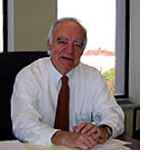 Merlin Donald
Merlin Donald
Merlin Donald was born and raised in Montreal. After completing a BA at Loyola College (now Concordia University) in Montreal, he went on to obtain a PhD in Neuropsychology from McGill University, where he also carried out Graduate Studies in Philosophy. He spent two years as a Post-Doctoral Fellow at the West Haven Veterans Administration Medical Center, followed by three years as a Research Neuropsychologist, and Assistant Professor in the Department of Neurology, Yale University School of Medicine.
Merlin came to Queen’s in 1972, and progressed through the ranks to become a Professor in the Department of Psychology, with adjunct appointments in the Faculty of Education and Department of Psychiatry. He became Head of the Department of Psychology in 2002, and retired from Queen’s in 2005, to become Professor and Founding Chair of the Department of Cognitive Science, Case Western Reserve University, Cleveland, Ohio.
He is the author of many scientific papers, and two influential books: Origins of the Modern Mind: Three stages in the evolution of culture and cognition (Harvard, 1991), and A Mind So Rare: The evolution of human consciousness (Norton, 2001). His work has been translated into seven languages. He has been a visiting professor or scholar at University College London, Harvard, Stanford, UCSD, and elsewhere, as well as a Visiting Fellow at the Center for Advanced Studies in the Behavioral Sciences, at Stanford, and a Killam Research Fellow. He was elected a Fellow of the Canadian Psychological Association in 1984, and a Fellow of the Royal Society of Canada in 1995. His work has been widely debated in various academic disciplines, including linguistics, archaeology, biology, cognitive science, psychology, philosophy, and neuroscience, and in many high-profile general periodicals such as Science, Nature, and The Behavioral and Brain Sciences.
Merlin has a strong interest in the cognitive study of the arts, and the cultural impact of new media, and his academic work continues to be focused on human cognitive evolution, and especially on the complex interactions between mind, technology and culture. He is also a published poet. He and his wife Thais have two sons, Peter and Julian.
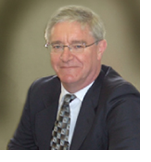 Alistair MacLean
Alistair MacLean
Alistair MacLean was born in Aberdeen, Scotland and educated at the University of Aberdeen and, as a Commonwealth Scholar, at Queen’s University where he graduated with his Ph.D. in 1969. After two years at the University of Edinburgh as a Post-Doctoral Fellow, he returned to the Department of Psychology at Queen’s in 1971 where he was promoted to Full Professor in 1984. From 1998 to 2002 he served as Head of the Department of Psychology, from 2002 to 2006 as Associate and then Vice Dean and from 2006 to 2013 as Dean of the Faculty of Arts and Science. He is a Registered Psychologist in the Province of Ontario.
His research interest is in sleep. In addition to clinical work with sleep disordered patients, he has carried out research on a number of different aspects of sleep including: the effects of hypnotic drugs on sleep; the effects of alcohol on sleep; the relationship between sleep and depression; the effect of the menstrual cycle on sleep; the effects of age on sleep; the effects of sleep loss and sleep displacement on subjective state and performance; the measurement of sleepiness; and the nature of the basic mechanisms controlling sleep. Most of his recent work has been on the effects of sleep loss on performance and, in particular, the effects of prolonged wakefulness on sleepiness and driving simulator performance.
Alistair has been a member of the research or fellowship committees of the Non-Medical Use of Drugs Directorate, the Medical Research Council and the Ontario Mental Health Foundation. He has also served as President of the Canadian Sleep Society. In 1988 he was a winner of the Alumni Award for Excellence in Teaching and in 1990 was elected a Fellow of the Canadian Psychological Association. In 2009 he won the T. Geoffrey Flynn Advancement Champion Award, and, in 2013, a Queen’s University Distinguished Service Award. In 2013-2014 he was appointed the Honorary President of the Arts and Science Undergraduate Society. He retired in 2016 but continued his research as Professor Emeritus.
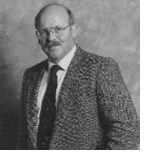 Rudy Kalin
Rudy Kalin
Rudy Kalin was born in Einsiedeln, Switzerland, a year before the beginning of WWII. He grew up there, but got his first opportunity to experience North America when he spent a year as a high school exchange student in New Jersey. After enjoying an eye-opening year in the States, he returned to Switzerland to finish the gymnasium run by Benedictine monks, and served his obligatory military service in the Swiss army.
A desire to study psychology and to return to the opportunities of the New World prompted him to apply to American universities. In 1958, he accepted an offer to attend Wesleyan University in Connecticut as a foreign scholar. There he had the privilege of studying under W. R. Thompson and work as his research assistant. He was awarded a B. A. degree with high honors in 1960. He also earned the Thorndike Prize in Psychology and was elected to Phi Beta Kappa and Sigma Xi.
After Wesleyan he moved to Cambridge, Mass. to commence graduate studies at Harvard University. He enrolled in the field of social psychology in the interdisciplinary department of social relations. His supervisor and mentor was David C. McClelland. He earned an M.A. at Harvard in 1962 and was awarded a Ph.D. in 1964 after completing a thesis on the effects of alcohol and social settings on fantasy.
For his first postdoctoral job he traveled west to Davis, California where he held a position as Assistant Professor from 1964 to 1967. He also met Jane McKinnis and married her in Sacramento in May of 1967. A continued stay in the United States was not possible, because as an exchange visitor he was not eligible for a green card. By 1966, W. R. Thompson had moved to Queen’s University and recruited Rudy for a job. Without ever laying eyes on Kingston, or Canada for that matter, he accepted the job offer at Queen’s and arrived in Kingston in September 1967.
Social psychology was not a big part of the department in the late 60s. Rudy taught a course in social psychology for general B.A. students. The distinction between general and honours courses would soon be eliminated through curriculum changes in the faculty of arts and science and the department of psychology. Bob Thompson would also soon recruit J. W. Berry, a Canadian social psychologist who was working in Australia. Rudy developed and introduced courses in personality and social behaviour, sex soles, and later intergroup relations. Curriculum changes at the graduate level introduced an area seminar in social psychology. Courses in social psychology became very popular among undergraduate students and a number of graduate students in clinical psychology completed theses on social psychological topics.
Rudy’s research focused, broadly speaking, on the concept of tolerance and its opposites discrimination and prejudice. With his graduate students he studied traditional sex role ideology and gender bias, particularly in the area of occupational suitability judgements. He became a collaborator with J. W. Berry on studies of tolerance and ethnic attitudes in the context of Canada’s multicultural society. Two national surveys on these topics became landmark studies for social scientists in and out of Canada. Other research relevant to multiculturalism consisted of studies on evaluative reactions to accented speech. He also investigated the dogmatic rejection of individuals with different beliefs.
During the popular headship of Andy McGhie, Rudy was able to hone his administrative skills as deputy head. He also served as acting head in 1986-1987 when Andy took a sabbatical leave after his first five year term as head. When Andy returned to the headship in the fall of 1987, he was still mourning his wife Ena’s recent death and his own health suffered. To the great regret of the department, Andy passed away suddenly in early 1988.
After Andy’s death, the dean of arts and science asked Rudy to serve as acting head for the rest of the 87-88 academic year. He was appointed head of the department as of 1 July 1988. During his headship, Rudy sought to bring consensus to the various interests in the department and he worked to make the departmental administration and procedures fair and transparent. He also reorganized support services, which had been under strain for some time. Student numbers kept growing at a higher rate than the faculty complement. In 1993 Rudy was reappointed as head for a second five year term to 1998 and in December 2000 he retired from Queen’s.
Rudy and his wife Jane had three children, all boys who graduated from Queen’s University in science and engineering fields. In his spare time Rudy was an avid sailor and participated (but rarely won) in the KYC shark fleet. When the domestic nest was empty, Rudy and Jane took up golf. In his retirement he enjoyed golf and his pride and joy were his grandchildren.
Rudy brought his considerable enthusiasm, thoroughness and organizational skills to everything he undertook, both in his professional and personal pursuits. Indeed he seemed to seek out new challenges for himself whenever he had accomplished his goals. For example, as a young faculty member he became very interested in Labrador retriever dogs, trained them expertly, and attended many field trials where he and his dogs won many awards for their performance. Likewise, when he later took up sailing he mastered sailing skills and raced his “Shark” regularly at the Kingston Yacht Club.
Colleagues and former students will remember fondly how he applied his special organizational and personal skills to the running of the Department. Under his headship he was extremely approachable, and tried very hard to be fair and equitable to everybody. His legacy on stepping down from the headship was to leave an administrative structure that ran as smoothly as a good “Swiss Watch”. As one example of his organizational skills many older members of the Department remember his ‘’Departmental Handbook” where he consolidated and listed the responsibilities of our many and diverse committees, including the important rules they were supposed to oversee. Prior to his headship this information was distributed diffusely, often in long forgotten departmental minutes, and so they were often unknown by newer members of the department and were therefore sporadically and inconsistently applied.
At the time of his death, and after nearly 11 years of retirement, Rudy again dedicated himself to a new cause, documenting the decline in “collegiality” at Queen’s over the past several years. Collegiality was, until relatively recently, the cornerstone principle of decision making at Queen’s. Rudy had researched this topic with his usual thoroughness, by sifting through the University archives and old minutes of the Senate and Board of Trustees, and even interviewing many former administrators. We all hope that this important document, which was almost finished at the time of his death, is completed by someone so that Rudy’s comprehensive analysis and historical research will reach the wider university community he so ably served.
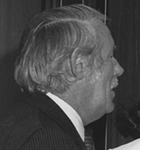 Andrew McGhie
Andrew McGhie
Born in Glasgow, Scotland in 1926, the son of the managing director of a construction company who had been promoted from the shop floor, Andrew received his education at John Glenn’s School, a noted private school in Glasgow. Drafted into the British Army in 1944, he was posted to a Scottish infantry regiment and took part in the invasion of Sumatra, then occupied by the Japanese, in 1945. After demobilization he went up to Glasgow University where he took a double first in Psychology and Economics. He then undertook post-graduate studies under the supervision of Thomas Freeman, a distinguished psychoanalytic psychiatrist who was editor of the British Journal of Medical Psychology.
He trained at Glasgow Royal Mental Hospital under the supervision of Freeman and John L. Hamilton, a distinguished Scottish psychiatrist. The three published an influential monograph, “Chronic Schizophrenia”, in 1958. Based on an experiment in which the three clinicians spent several hours each day over the course of several weeks with a group of 18 chronic schizophrenic patients on the ward, the monograph was influential in documenting the crucial role played by psychiatric nurses in the management of these patients. Although the monograph’s approach was generally heavily psychoanalytic, the chapters on perception, thinking and memory written by Andrew were notable for their empirical perspective, anticipating the experimental psychopathology model of mental illness which developed during the subsequent decade.
Andrew was subsequently appointed clinical psychologist at the Crighton Royal Hospital in Dumfries where he worked with R. D. Laing, then a resident in psychiatry. In 1960 Andrew was appointed Principal Psychologist at Royal DundeeLiff Hospital with an honourary appointment in the Department of Psychiatry at St Andrews University. There he developed a program of research aimed at adapting the techniques of experimental psychology to the investigation of cognitive deficits in schizophrenia.
In 1968, he was appointed Associate Professor in the Department of Psychology at Queen’s University, and served as Head of Department from 1980 to 1987.
Contributed by Stuart Lawson, Mental Health Services, Providence Continuing Care Hospital, Kingston, ON.
 Peter Dodwell
Peter Dodwell
Peter was born in India, raised and educated in England, and graduated from Oxford University with degrees in Philosophy and Psychology. Scholar, writer, musician, artist, avid gardener and sportsman; he lived an active and varied life –– at times rather on the edge, but his natural charm helped him through a few awkward situations.
He came to Canada in 1958 and spent his career at Queen’s University. He also taught at London University and Harvard and was a visiting professor at various other universities in Canada, Britain, the United States, Australia, and New Zealand. Peter was a Fellow of the Royal Society of Canada and the Canadian Psychological Association of which he was president in 1985. He also held a number of prestigious research fellowships (including Guggenheim, Killam, C.D. Howe, and McLaughlin Fellowships).
He received many other academic honors, including the D.O. Hebb award for contributions to psychological science. During his career, Peter morphed from a proper young Englishman wearing jacket and tie to deliver his lectures, into a more relaxed, North American casually dressed senior professor, always looking to challenge his students and colleagues, in one way or another. In this regard, a year spent at Stanford, California in the late 1960’s proved seminal in making him a more relaxed model for his students (and family!).
Despite his busy academic life, Peter followed a number of other less formal paths. He was an active and concerned partner and parent; to the extent of marrying three times –– variety is the spice of life. He was an enthusiastic cellist and chamber musician and was quite proud of the fact that he was taught by Margaret Rowell at Berkeley Conservatory, a student of the great Rostopovich. He was a tennis player into his 70’s, a skier, and a yachtsman. He never won a Cup but once or twice gave the Canadian Shark Champion a run for his money!
Peter always had a deep concern for the meaning of life and in his later career, when married to Elizabeth, made a particular study of the idealistic and spiritual basis for human culture and creativity, culminating in a book published in 2000 titled: Brave New Mind (Oxford University Press), which swam against the strong current of Darwinian Materialism so prevalent in modern science. Peter and his wife, Elizabeth, retired to Victoria in 1993. He died peacefully on September 19, 2006.
Dictated by Peter in Victoria, B.C., on May 4, 2006, four months before his death.
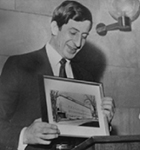 William Thompson
William Thompson
In 1948-49 the Department of Philosophy had become the Department of Philosophy and Psychology. The faculty were divided under these two headings. William Thompson was one of the Instructors for Psychology. There was, between 1949 and 1959, for the academic ranks above Lecturer, a very rapid turnover of faculty in the Department. Thompson had left and returned to Queen's in 1954 to spend two years as Lecturer in Psychology. He came at that time from McGill, where he had carried out some of the pioneering studies of the effects of early environmental restriction on later development in animals. He left in 1956 to take up a position at Wesleyan University in Connecticut. In 1966, William Robert Thompson returned once again to Queen’s, this time as Head of Department of Psychology.
Born in 1924 of Canadian parents in Toulon, France, and a graduate of the Universities of Toronto (BA, 1945; MA, 1947) and Chicago (Ph.D., 1951), he had worked in many university departments of psychology in Canada, the United States, and in Australia. An authority in the fields of developmental psychology and behaviour genetics (see, for example, Fuller and Thompson, 1960; 1978), he had held a Guggenheim Memorial Fellowship in the Behavioral Sciences at Palo Alto in 1963-64. He came to Queen’s, on this occasion, just as George Humphrey had done, from Wesleyan University in Connecticut.
Inglis, J. (1982). Psychology at Queen's. In M. J. Wright & C.R. Myers (Eds.), History of academic psychology in Canada (pp. 100-115). Toronto Hogrefe (reprinted with permission of publisher).
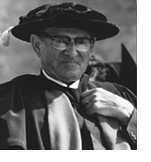 Julian Blackburn
Julian Blackburn
Julian Murray Blackburn was born in Hove, England, in 1903. An old Wykehamist, he was a graduate of both the London School of Economics (B.Sc. Econ., 1928) and of Cambridge University (Ph.D., 1933). While he was at Cambridge he had worked, under F.C. Bartlett, with the Industrial Health Research Board (1928-33). After holding a Rockefeller Fellowship at Yale University in 1933-34, he was then employed by the Medical Research Council (and also worked as a clinical psychologist at the Maudsley Hospital) over the years 1935-38. He became a Lecturer in Social Psychology at L.S.E. in 1939, where he remained until he emigrated to Canada in 1948.
For one year he was an Associate Professor at McGill University, and was called to the Chair at Queen’s in 1949. While he was still at L.S.E. he had published two brief texts, Psychology and the Social Pattern (1945) and The Framework of Human Behaviour (1947). He was a man who had, when he chose, great power to charm, together with a ready wit (which was, however, not always without its own barbed edge).
In the first years of his term at Queen’s, much effort must have gone into building up the undergraduate curriculum in psychology. Just before Philosophy and Psychology were formally split apart there were seven lecture courses and three reading courses offered in psychology. A few years later there were fifteen lecture courses and three reading courses available. Perhaps because of Blackburn’s own experience in applied and clinical psychology, closer links were also being forged, at this time, between the Departments of Psychology and Psychiatry. Dr. C. Homer McCuaig, who was Professor of Psychiatry and Superintendent of the Ontario Hospital, Kingston, was then listed in the University Calendar as a member of the Department of Psychology.
He was Editor of the Canadian Journal of Psychology from 1959-1965, and served on many national and provincial committees.
By 1964-65 changes were in the air. Julian Blackburn had withdrawn as Head of the Department, and Peter Dodwell was Acting Head
.
In 1960, Julian Blackburn had already been appointed, on behalf of Queen's University, as one of a group of advisers to the Board of Governors of the nascent Trent College in Peterborough; a group informally known as the ‘Midwives’ of Trent. In 1965, Blackburn resigned from Queen’s to become the first Chairman of the Department of Psychology at that new University. He was Associate Dean of the Faculty of Arts there from 1969 to 1970, becoming Emeritus Professor of Psychology in 1973. He died in September, 1974, and the next year there was established in his name the Julian Blackburn College of Part-Time Studies at Trent University.
Inglis, J. (1982). Psychology at Queen's. In M. J. Wright & C.R. Myers (Eds.), History of academic psychology in Canada (pp. 100-115). Toronto Hogrefe (reprinted with permission of publisher).
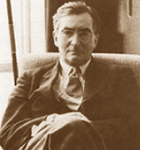 George Humphrey
George Humphrey
George Humphrey was born in Broughton, England in 1889, and took his degree in Greats in Oxford in 1912. He then studied psychology at Leipzig in Wundt’s laboratory as a Cassel Scholar. After that he came to Canada and spent two years as Professor of Classics at St. Francis Xavier University. He then went on to Harvard as Townsend Scholar and gained his Ph. D. there in 1920. After his doctorate he went on to work with Raymond Dodge at Wesleyan University in Middletown, Connecticut. While he was still at Wesleyan he published his first book, the Story of Man’s Mind (1923), which was a popular psychology text; its contents were described on it dust cover as, “The psychology of business, home and school, with its thousand uses and applications explained for everyone.”
Humphrey’s name first appears in the Queen’s University Calendar for 1925-26 as Charlton Professor of Philosophy in the Department of Mental and Moral Philosophy; his only colleague in that Department for the next three years being H. Reid MacCallum. Humphrey was, as later described by Bartlett (1966), “A man above normal height, neat, active, very friendly; but also on occasion, unyielding, and a good companion.” He is now portrayed in a place of honour in Humphrey Hall, the present home of the Department of Psychology at Queen’s University, as he is shown in the accompanying photograph.
When he was called to Queen’s, he had been asked by the Dean of Arts, Oscar Skelton, to build up the psychological side of the Philosophy Department (Blackburn, 1957) and this he began at once to do, with very great energy and effect.
In terms of undergraduate work, there was a sharp and dramatic change in course content just as soon as Humphrey took over. From a heavy concentration on the Greek and German philosophers, the Department changed to a broad offering of courses in psychology, as well as in philosophy.
By 1930, Humphrey and his new Associate Professor, Reginald Jackson, between them gave ten intramural courses in philosophy, of which five were actually courses in psychology.
By the year 1931-32, Jackson had left the Department, and Humphrey was running his courses with the aid of but one Lecturer, Dr. Gregory Vlastos. Nevertheless, a new course, Philosophy 98. Problems in Psychology, was that year introduced, with the following intent. “A specific problem of a minor character is taken up experimentally. A comprehensive report will be required, which will exhibit the results of the experimental work and give an account of the previous literature. The course is open for advanced students only, and by permission of the instructor.” This certainly reads as if Professor Humphrey had begun in earnest to produce psychologists under cover of his Department of Philosophy!
At the same time as George Humphrey was so radically changing the undergraduate curriculum of his Department he was, of course, also engaged in many other tasks of fundamental importance to the development of psychology in Canada.
In the early years of his appointment he had to beg or borrow laboratory space for his own investigative work wherever he could find it (how, at that time, would a Professor of Philosophy justify his need for a laboratory?).
Only the hospitality of the Department of Biology enabled him to carry out his classical work on conditioning effects using pure tones and arpeggios (Humphrey, 1927), and his studies of habituation in snails (Humphrey, 1930). It was, it will be recalled, Humphrey’s so-called discussion of the patterning of stimulus compounds as part of his influential Principles of Behavior (1943). Humphrey himself put his work on conditioning and learning together in his best book, The Nature of Learning (1933). The year before that he had, with his first wife, published a translation of Itard’s Wild Boy of Averyon (1932), to which he had also added a scholarly introduction.
In his time at Queen’s, Humphrey also wrote the chapter on “Thought” for his first edition of Boring, Langfeld and Weld’s Psychology: a factual textbook (1935). His book Directed Thinking (1948), although it was not published until he had left Canada, was written at Queen’s and in it he acknowledges the help of, “My Friends Gregory Vlastos, who critically read many of the chapters, Martyn Estall, and R.O. Earl, each of whom gave me expert advice.”
Humphrey was also active in the application of psychology to military purposes, especially personnel selection, in the Second World War (Blair, 1966). He joined with other psychologists at that time as a founder-member of the Canadian Psychological Association (Myers, 1965). He was Secretary of the Association for the first three years of its existence, and then followed E.A. Bott as its second elected President. In his spare time he wrote two novels!
In 1947, St. John’s College invited Humphrey over to Cambridge for a year as a Dominion Fellow. That same year, the University of Oxford, defying William McDougall’s (1926) sarcastic prediction, managed to create a Chair to which Humphrey was called, and thus lost to Queen’s.
Inglis, J. (1982). Psychology at Queen's. In M. J. Wright & C.R. Myers (Eds.), History of academic psychology in Canada (pp. 100-115). Toronto Hogrefe (reprinted with permission of publisher).